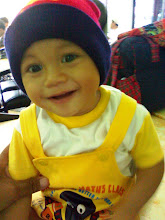The beginning of the twentieth century was a significant period in which some important developments took place. One of these was the application of Etische Politiek ( Ethical Policy ), which had influenced many aspects of Indonesian life, in particular education, and the emergence of the new Islamic and nationalist schools.
A. The Colonial Government’s Educational System
The modern Dutch education system influenced not only the emerging modern Islamic educational institutions, but also the nationalist system of Indonesia. This modern education system was introduced by the Dutch colonial authorities. The Islamic modernists adopted the colonial model system.
The colonial educational system was different, in some respects, from the Islamic and nationalist ones in terms of method, curricula, and goals. The colonial system was based on secular subjects and skills, whereas the Islamists and nationalists put grater emphasis on religious and nationalistic values.
The educational system of the colonial authorities can be described as follows ;
The learning plan followed formal graduation.
Secular subjects were taught, not religious ones.
The teaching and learning took place collectively inn classes, not individual.
It was not free of charge. There was a tuition fee.
Some aspects of the western educational system above were taken up as models to carry out the educational activities by Muslims and nationalists, traditional systems.
During the colonial period, educational services were defined into three categories, which were based on a differentiation of descent, nationality and social status. They were:
Primary and advanced schools and for the population of European descent,
Public primary school and special schools for the native population of noble statuts,
Vocational schools which could be attended by both the European and native population.
The European Primary School ( EPS ) was firs established in Jakarta inn 1817. It experienced a rapid development. By 1820 there were seven school and by 1902 the total number of schools had increased to 173. Apart from this level, in 1860, after having received authority from the king of the Netherlands, the colonial government established the first secondary school for Europeans, called Gymnasium Willem III. From 1867 onwards, the school offered two levels of education, primary levels with a schooling duration of five years from which graduates could continue to university, and secondary level with a three – year duration from which graduates could go on to further education such as military officer training, civil servant school, the commerce academy, or craftsman’s school in Delft, the Netherlands to HBS ( Hoogere Burger School ) with a five – year course duration.
These types of school, which used the Dutch language, were designed especially for European descendants. Access to this school, however, was ultimately also for the privileged few of the native population. The opportunity to take part in the European school was provided when the colonial government, in 1924, built up a schakel school, at which native students began to study Dutch, and adapted themselves to the atmosphere of education.The ethical policy had changed the face of education in Indonesia. This was evident from the number of school which were developed and linked and matched to the development of bureaucracy and society. The total number of schools increased from 1,584 in 1990 to 21,256 same period, the number of primary school pupils increased from 118,000 to 2,349,000
Saturday, March 14, 2009
THE COLONIAL CONTEXT OF THE FOUNDATION OF MODERN SCHOOLS IN INDONESIA
Subscribe to:
Post Comments (Atom)


No comments:
Post a Comment